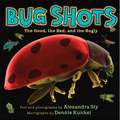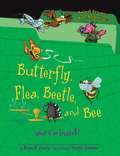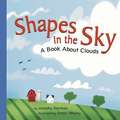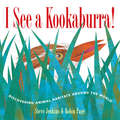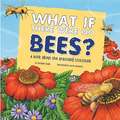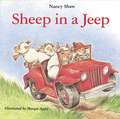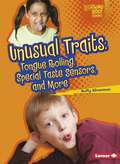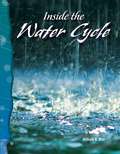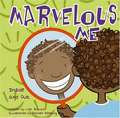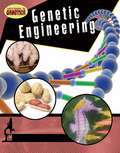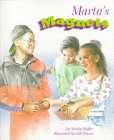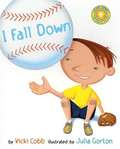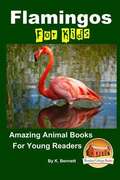Special Collections
District List: BCPS Science - Grade 3
Description: Baltimore City Public Schools Science book list for students in 3rd Grade. #bcps
- Table View
- List View
Secrets Of The Garden
by Kathleen Weidner ZoehfeldPerfect for spring planting season--an outstanding book about backyard science the whole family will appreciate.
Alice's family plants a vegetable garden each spring, and this budding naturalist reports all she sees about how the plants grow, what insects come to eat the plants, and what birds and animals come to eat the insects It's the food chain, right in her own backyard! While Alice's narrative is simple and engaging, science concepts are presented in more depth in sidebars by a pair of very knowledgeable (and highly amusing) chickens! Noted science writer Kathleen Weidner Zoehfeld knows how to layer information to make it accessible to a wide range of readers and useful for educators. And illustrator Priscilla Lamont's funny, friendly paintings make this a garden everyone will want to explore. Kids will eat up this wonderful book of backyard science--and perhaps they'll even be inspired to eat their vegetables! "A wonderfully informative and enjoyable journey through one family's backyard garden, from spring planting to fall harvest. . . . this is bound to spark some backyard explorations. " --Kirkus, Starred Review From the Hardcover edition.
Bug Shots
by Alexandra Siy and Dennis KunkelBugs bite, drink blood, and rob food from gardens and fields. They can even kill plants, animals, and, occasionally, people. Is bugging a crime? Alexandra Siy compiles "rap sheets" on several of the major categories of bugs and takes a very close look at some of the types of insects in an engaging text. The fascinating photo micrographs magnify insect parts from 10 to 300,000 times their actual sizes. this kid-friendly approach, coupled with meticulous research and lively writing, turns learning about insects into an intriguing experience.
What Makes a Magnet?
by Franklyn M. BranleyDescribes how magnets work and includes instructions for making a magnet and a compass. A book in the Let's-Read-and-Find-Out Science book series.
Butterfly Flea Beetle and Bee What is an Insect
by Brian ClearyThis book introduces the child to various insects, their metamorphosis as well as their anatomy.
Shapes In The Sky
by Josepha Sherman and Omarr Wesley and Picture StaffIllustrations and simple text explain different kinds of clouds--cumulus, cumulonimbus, stratus, cirrus--and the types of weather they indicate.
I See a Kookaburra!
by Steve Jenkins and Robin PageI See a Kookaburra! lets readers search for an oystercatcher, an elephant shrew, and a fierce snapping turtle in the places where they live. Learn how these animals and many others grow and thrive in very different environments.Incorporated into the book is an interactive element. Hidden in the illustrations are animals camouflaged in their surroundings. Turn the page to see if you were able to find them all!
What If There Were No Bees?
by Suzanne Slade and Carol SchwartzGrassland ecosystems can be found on nearly every continent. Countless animals and plants live in them. So what difference could the loss of one animal species make? Follow the chain reaction, and discover how important honey bees are.
Sheep in a Jeep
by Nancy ShawThis book records the misadventures of a group of sheep that go riding in a jeep.
What Will the Weather Be?
by Lynda DewittWill it be warm or cold? Should we wear shorts or pants? Shoes or boots? Read and find out why the weather is so difficult to predict.
Feel The Wind
by Arthur DorrosHave you ever felt the wind tickle your face or heard it whistle through your window? Did you know that some wind travels faster than a car?
Air is always moving. We can't see air moving, though we can watch it push clouds across the sky, or shake the leaves of a tree. We call moving air the wind. In this enlarged edition, find out about the wind - what causes it, how it can be used to help us, and how it affects the weather.
Arthur Dorros shows you how to make your own weather vane, and in simple terms, with playful illustrations, he explains just what makes the wind that blows all around us.
Unusual Traits
by Buffy SilvermanCan you roll your tongue into a U-shape? Some people can. But other people's tongues stay flat. What determines whether you can roll your tongue?
Inside the Water Cycle
by Science Staff and William RiceThe water cycle is like a circle-it has no beginning and no end. When the sun heats ocean water, it evaporates and forms clouds in the sky. When these particles get big enough, they can fall to Earth as precipitation in the form of rain, sleet, snow, or hail. When water hits the ground, it can change to liquid, soak into the ground, or run off and form streams or rivers. But it always makes its way back to the ocean, where the cycle "begins" again.
Marvelous Me
by Lisa BullardThere is no one else quite like Alex. With his special laugh, his grizzly hugs, and his own interesting thoughts, Alex is one of a kind. Presenting similarities and differences Alex has with others, Marvelous Me, by Lisa Bullard, will encourage children to embrace the things that make them unique. Playful illustrations and fun activities make this book a great addition to home and classroom libraries.
Lexile Measure: 0510
Genetic Engineering
by Marina CohenDiscusses current and potential uses of genetic engineering in fields such as medicine, criminal investigation, and agriculture and examines some of the ethical questions involved.
Lexile Measure: 840L
Marta's Magnets
by Wendy Pfeffer and Gail PiazzaMarta's sister Rosa calls her magnet collection junk, but Marta's magnets help her make friends in her new home and help her retrieve a lost key for Rosa's new friend.
I Fall Down
by Vicki CobbSimple experiments introduce the basic concept of gravity and its relationship to weight.
Ant Cities
by Arthur DorrosDid you ever wonder where an ant goes when it disappears into an anthill? Underneath the hill, there are miles of tunnels and hundreds of rooms! With simple, easy-to-understand words and colorful illustrations, Arthur Dorros explains the life of a harvester ant for the early reader and even shows readers how to build their own ant farms!
Flamingos For Kids
by K. BennettLots of facts and photos will help your children learn about this wonderful animal. Children are given a well-rounded understanding of this beautiful animal: its anatomy, feeding habits and behavior.

